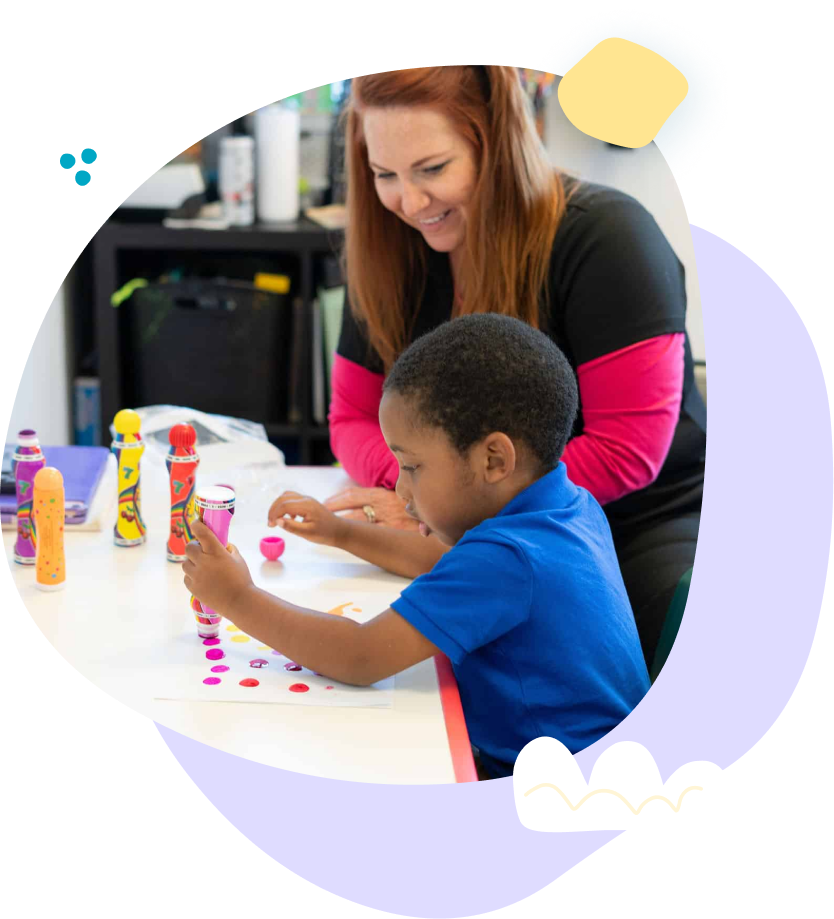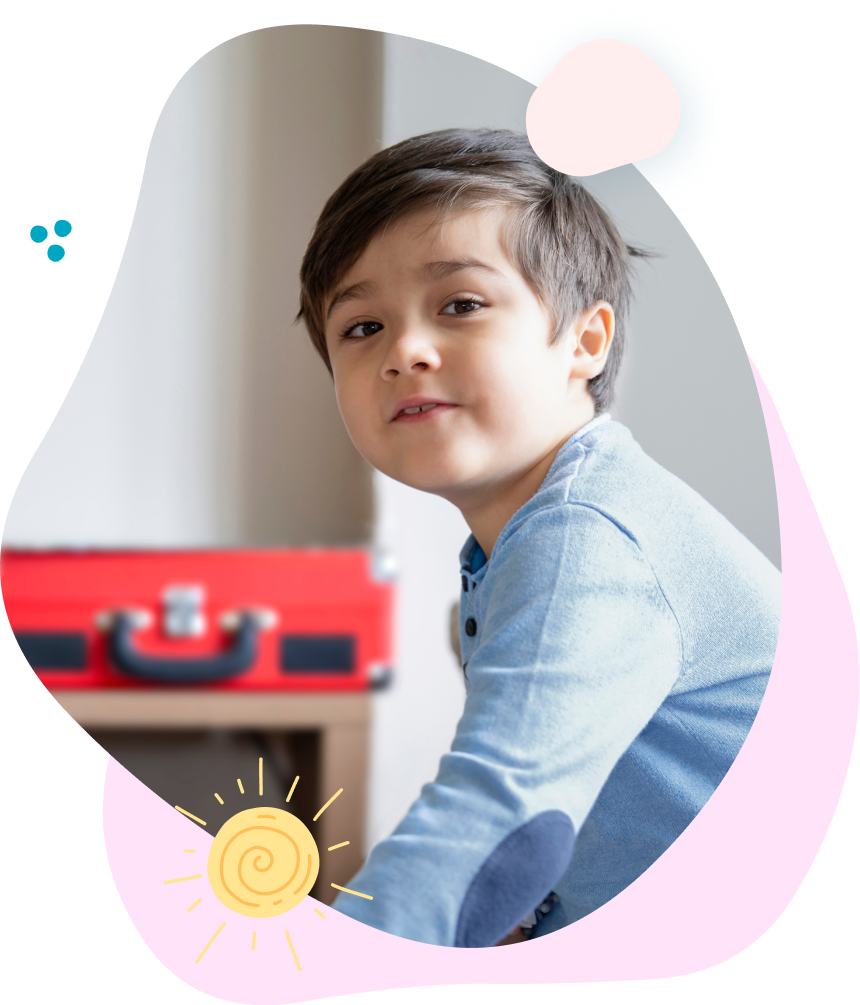Your Clinic
SET A LOCATION
Your Clinic
SET A LOCATION
PPT provides personalized autism services to help children develop skills, enhance communication, and achieve greater independence.
An autism diagnosis is part of a broader category known as
Neurodevelopmental Differences. This simply means that your child’s brain processes information in a unique way, which can impact communication, social interactions, and daily routines. Rather than defining your child, this diagnosis helps highlight their strengths and areas where they may need extra support, guiding us toward the best approach for their development.

Our multidisciplinary team utilizes a comprehensive range of therapeutic tools specifically selected to support children with autism. These interventions address communication, sensory processing, motor skills, and social development in engaging, evidence-based ways.




Augmentative and Alternative Communication (AAC) includes tools, from picture boards to advanced devices, that aid children with speech and language difficulties in communicating effectively. This comprehensive approach helps children who have challenges with verbal communication express their needs, thoughts, and ideas through various technological and non-technological methods.
Aquatic Therapy is a skilled treatment method used by therapists to enhance your child's functional abilities. The warm, buoyant water enables your child to feel free and have fun in therapy, in a natural environment! The water's buoyancy reduces stress on joints and muscles while providing resistance for strength building, making it particularly beneficial for children with movement limitations.
Progressive Pediatric Therapy has partnered with Love Serving Autism to provide Speech, Occupational, Physical Therapy sessions while receiving Specialized Therapeutic Racquet Sports Instruction. This unique program offers instruction for all abilities, teaching communication, fine/gross motor skills, and life skills on the courts for goal of carry-over off the courts. Our Tennis Program helps works on social skills, motor coordination, and life skills like teamwork, listening, and respect.
Attend our clinics for expert orthotics evaluations and fittings, designed to improve mobility and ensure optimal comfort tailored to your needs. Children at PPT can attend monthly clinics for custom wheelchairs or orthotics, designed to enhance mobility and ensure proper postural alignment. These specialized devices support proper body alignment and improve functional mobility.
PPT uses cutting-edge tools like Galileo whole-body vibration platforms and Mano dumbbells to enhance therapy outcomes. Therapeutic vibration helps to optimize neuroplasticity, promote motor learning and decrease the complications of many childhood conditions that limit movement, sensory processing skills, and learning. A unique therapeutic intervention used to decrease muscle tightness, change habitual patterns of movement in a single joint, or improve range of motion.
The Diagnostic and Statistical Manual of Mental Disorders, 5th Edition (DSM-5) describes Autism as including differences in social communication and interaction. Individuals with Autism may communicate in various ways, such as using few or no words, repeating phrases (echolalia), or using unique expressions that others may not immediately understand. Non-verbal communication, like eye contact, facial expressions, and body language, can also be different, which is important to consider in social settings.
Autistic individuals often connect with others in ways that may differ from typical expectations. They might prefer spending time alone, interacting with others less frequently, or engaging in unique ways, like repeating questions or focusing on specific interests. Some people with autism might find it challenging to understand or express emotions in typical ways, and children might approach play differently, which can affect social skill development as they grow.
Autistic individuals may engage in repetitive movements (like rocking or hand-flapping) or have deep interests in particular topics or activities. They might prefer predictable routines and feel distressed when there are unexpected changes. These repetitive behaviors often provide comfort, regulate emotions, or serve as a meaningful way to interact with their environment.
Some autistic individuals may experience challenges with fine motor skills like holding a pencil, buttoning a shirt, or feeding themselves using utensils. Some may have challenges with gross motor skills, like kicking a ball, climbing on playground equipment, or maintaining their balance during play. Autstic individuals may have gross motor movements that appear awkward or clumsy.
Predictability can be very important for autistic individuals, and changes to routines or environments—like using a different door to leave a building—may cause discomfort or anxiety. Having familiar objects or following set routines often helps them feel secure and more at ease.
Cognitive abilities vary widely among autistic individuals. Some may have unique learning styles or take longer to find teaching methods that work best for them. It’s important to remember that each person with autism learns in their own way, and discovering the right approach may take time.

At Progressive Pediatric Therapy, we offer a holistic, multi-disciplinary approach to support children with autism, honoring each child's unique strengths. Our experienced team of
speech,
occupational, and
physical therapists collaborates to create a personalized care plan that focuses on both your child’s needs and family goals.
Tailored physical activities to enhance motor skills, strength, and coordination.
A sensory-based therapy that helps improve focus, communication, and self-regulation.
Techniques to help manage sensory sensitivities and integrate sensory information more effectively. Learn More About our Augmentative and Alternative Communication (AAC) resources.
Understanding the "why" behind behaviors to create positive behavior support plans.
Using positive reinforcement to encourage progress and learning.
Personalized stories to help children understand social situations and expectations.
Breaking down tasks into manageable steps to promote success in everyday activities.
Tools like visual schedules and cues to help with transitions, communication, and understanding
We’re here to help your child grow, communicate, and thrive. Our compassionate team is ready to provide personalized support tailored to your child’s unique needs. Contact us today to learn how our autism therapy services can enhance your child’s skills and independence.
We empower children, families, and the community to learn, grow, and celebrate every child's unique abilities.
Quick Links
Contact Details
Phone: 561-376-2573 | 561-918-0190
Fax: 561-218-4939
VIP Concierge: 561-717-1764
Clinic Locations
All Rights Reserved | Progressive Pediatric Therapy, Inc. | Privacy Policy | Terms of Service
Site by Spearlance